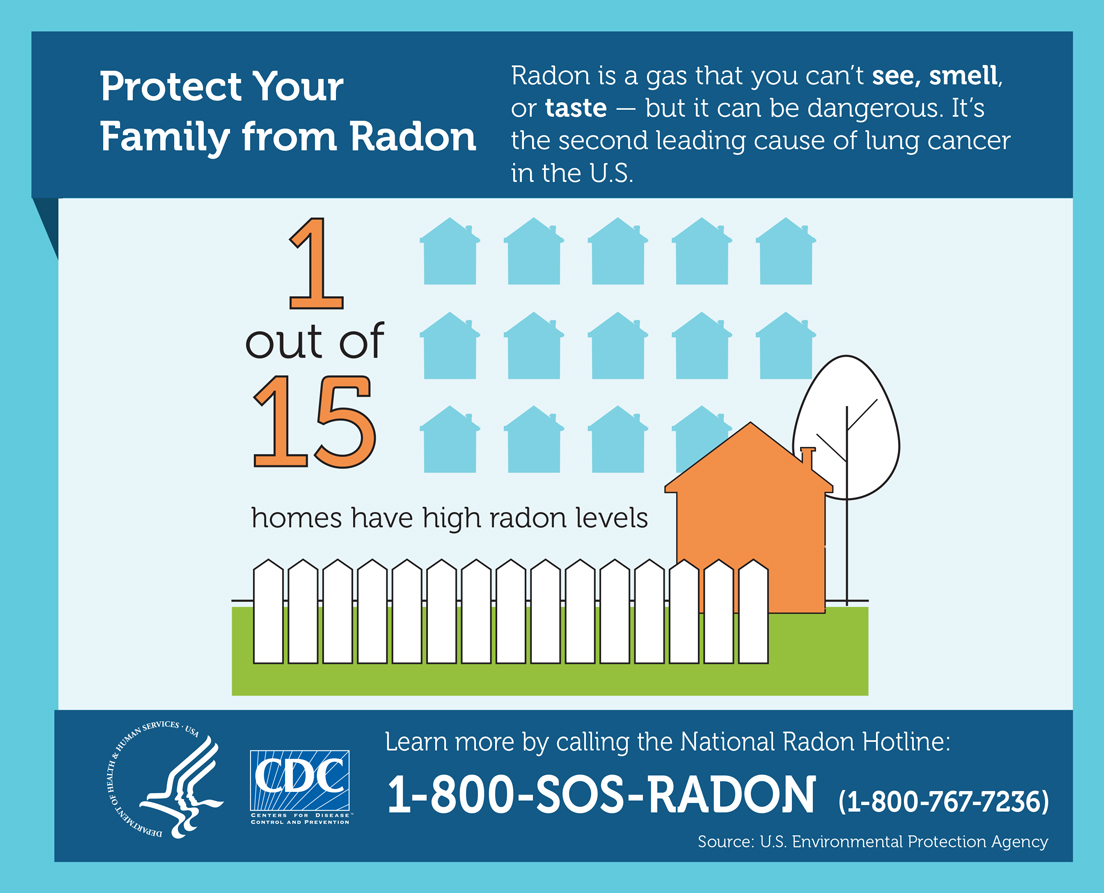 You can’t see, smell or taste it, but radon is second only to smoking as the leading cause of lung cancer.
You can’t see, smell or taste it, but radon is second only to smoking as the leading cause of lung cancer.
The U.S. Environmental Protection Agency (EPA) designates January as National Radon Action Month, an annual observance to raise awareness of the dangers of radon, to promote radon testing and mitigation, and to advance the use of radon-resistant new construction practices.
Radon is a radioactive gas that results from the natural decay of uranium in rocks, soil and groundwater. It can seep into your home from cracks and other holes in the foundation and build up over time. The highest levels of radon are typically found in the lowest livable areas of the home, such as basements or other rooms in direct contact with the ground.
Breathing in radon can cause health problems. The higher the radon level and the longer a person is exposed to it, then the greater the health risk. The combination of radon and smoking is even more deadly – if you live in a home with high radon level, smoking raises your risk of lung cancer by 10 times.
Half of Virginia’s counties and independent cities – including Fairfax County and the cities of Fairfax and Falls Church– are designated by the EPA as having a high potential for indoor radon. But many people living in those homes have no idea of the danger.
“Houses next door to each other can have very different levels,” said Pieter Sheehan, Environmental Health Director for Fairfax County. “The only way to know if your house has an elevated radon level is to test. And the recommended time to test is in the winter.”
If you have tested your home for radon and confirmed that you have elevated radon levels (4 picocuries per liter in air (pCi/L) or higher) it’s important to hire a qualified radon mitigation contractor to reduce the radon levels in your home.
To order a simple test kit for $3 or to find a qualified testing or mitigation contractor, Virginia residents can visit www.vdhradon.org or call VDH Radiological Health Hotline, 1-800-468-0138.
For more information on radon, you can also visit www.fairfaxcounty.gov/health/environment/air/radon and www.epa.gov/radon or call the National Radon Hotline at 1-800-55RADON (557-2366).

